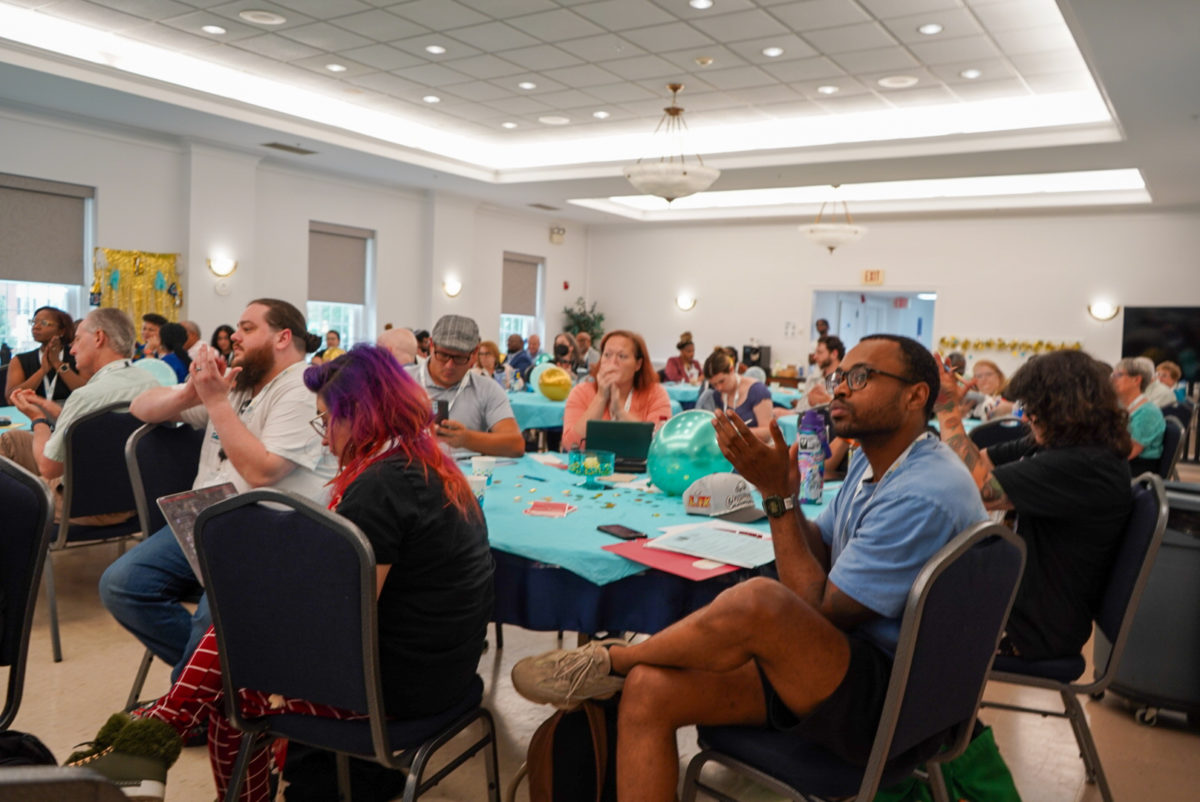On Saturday in downtown Dover, the air was thick with humidity. It was also thick with zeal. Advocates and nonprofits met at Christ Episcopal Church in downtown Dover to discuss how they could collaborate to create social change in Delaware. Hosted by Network Delaware, the 3rd annual change summit explored ways that people could get active in their local communities and meet like-minded individuals.
Patricia Maloney, a student from the University of Delaware attending the summit, said they hoped to build networking opportunities and get to know the various organizations and groups in attendance.
The day consisted of roundtable discussions about what meaningful change looks like, how to support one another, and the role of public policy to create that change. A common word discussed was silo.
A speaker on the panel on the social change ecosystem, Shane Cannon of Delaware Humanities, agreed that there are silos, in this case, groups that operate in isolation across the state. These groups should be working together to provide more for their communities.
“The things we have achieved for communities are really a floor, not a ceiling,” said Cannon. “We need to keep bringing resources to these individuals.”
From housing to clean energy to Palestinian human rights, the individuals at the summit represented a wide range of causes. Attendees frequently exchanged business cards and contact information to get involved and stay informed. Most people were already involved in several projects but were eager to take on more in the name of social change.
Attendees and panelists also discussed how there are assistance gaps in that state, which, if filled, could help provide more help to individuals.
Maria Beauchamp, a Puerto Rican organizer, said that more people should be educating the youth on what is going on around them, stating that everyone “has an opportunity to empower our youth.” She also added that multilingual access, including sign language, is needed across the state. Not just simply translating text, but providing context and getting someone who knows the language to make sure concepts are interpreted properly.
Many attendees listed other gaps, such as a lack of data transparency on state websites so people know where data is coming from. Also, one individual said he checked a state website and could only find housing data from three years ago.
In the end, attendees were left with a simple goal: No matter if they are a large nonprofit or just one individual, they must go and create change.
“The most valuable resource we have is our time,” said Deidre Shepard of the H.O.M.E.S. Campaign, a housing justice campaign.
Editor’s Note: Network Delaware is the non-profit sponsor of the Delaware Call

